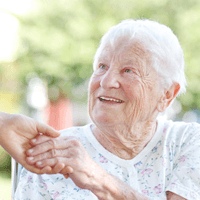
Alzheimer’s disease is a debilitating and cruel disease. Researchers in Spain have published preliminary studies that provide early hope that use of melatonin and regular exercise can help prevent or delay the onset of the illness.
 Sleep and Aging Linked
Sleep and Aging Linked
Melatonin has been approved as a medication in the European Union to treat sleep disorders since 2007. It has been found to be extremely effective to treat sleep problems in children with autism, those who are blind and other cases in which sleep is a problem. Circadian rhythm studies have also found that sleep disturbance is associated with degenerative neurological conditions such as Parkinson’s and Alzheimer’s.
Studies on the impact of regular exercise have also found that routine physical activity delays many signs of aging. Individuals who are physically active maintain muscle strength, balance and flexibility. Additionally, they are healthier emotionally and mentally.
The researchers from the Barcelona Biomedical Research Institute, the University of Granada and the Autonomous University of Barcelona studied the combination of the use of melatonin and exercise and how it affects neurological protection. What they discovered is that when used together, symptoms of progressive neurological disorders, such as Alzheimer’s, regress. The researchers believe that both melatonin and exercise protect brain neurons from oxidative stress, which occurs as cells use energy.
Regular exercise does not need to include running marathons. Instead, being physically active merely 30 minutes a day can be adequate physical activity for many adults. Walking, yoga, bike riding and swimming are all good forms of exercise.
Although melatonin is not approved as a medication by the FDA in the United States, it is available as a health supplement. Maintaining healthy sleep habits and regular physical activity are proving to be healthy choices when it comes to preventing degenerative neurological conditions. Most adults need an average of eight hours of sleep nightly for adequate rest.
What are your favorite forms of exercise? What helps you go to sleep at night? Let us know what you think.
– The Alternative Daily

